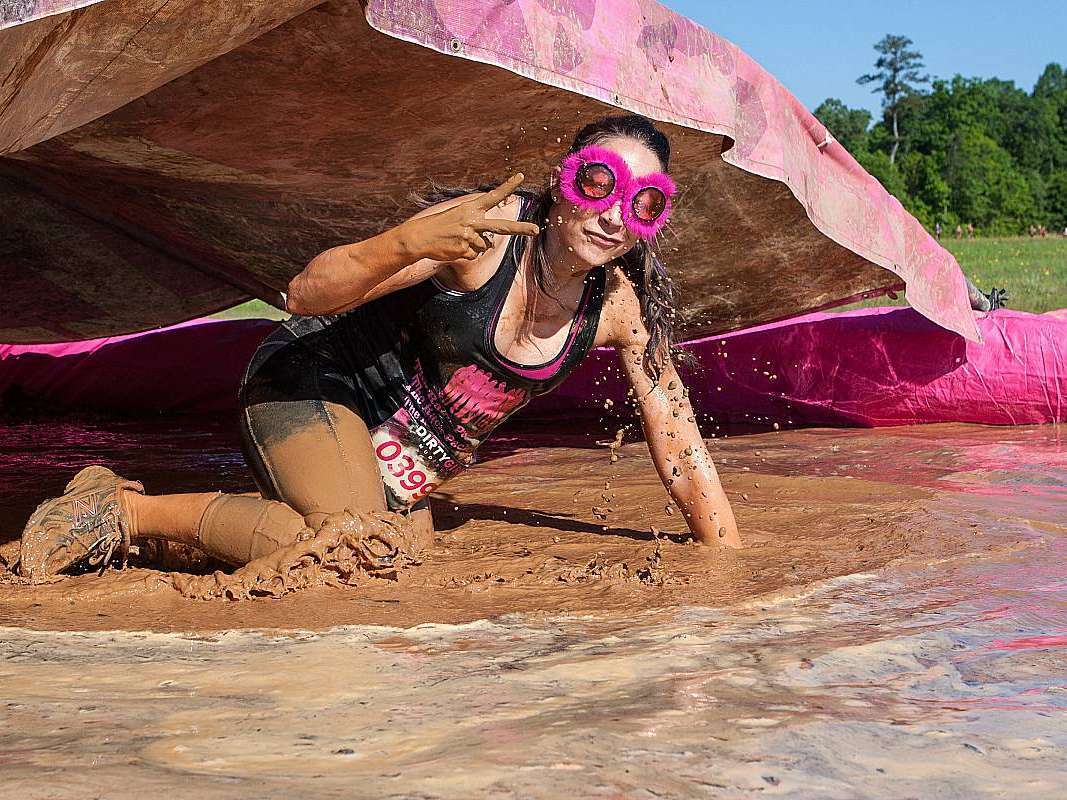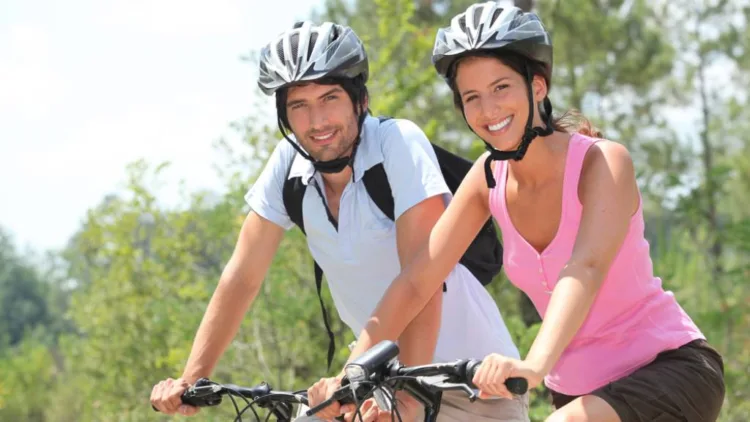Recently a friend of mine and I decided to explore a new bike route that went through a rural town, Gladeville, TN. It seemed like we were out in the middle of nowheresville when suddenly we biked past a gated yard that was filled with grazing Zebras!
 Hmmm… Zebras in Africa – check; Zebras in a zoo – check; Zebras in Gladeville, TN – huh?!?!
Hmmm… Zebras in Africa – check; Zebras in a zoo – check; Zebras in Gladeville, TN – huh?!?!
We hopped off our bikes and took the above pic. I’m guessing it was some sort of refuge for injured Zebras but not the sort of thing you expect in a town where the Nashville Super Speedway is the major attraction. I don’t see any connection between Zebras and NASCAR.
By the way, if you want to find or share new bike routes, you might be interested in Map My Ride.
All-New Experiences
The experiences you will have training and competing in triathlons is one big reason you’ll want to continue after your first triathlon.
Some of those experiences will be very personal, perhaps even spiritual — like biking a long stretch of quiet scenic country road. As you train for triathlons, it’s likely you will include running events like a half marathon, or cycling events like riding a Century. These events, including the triathlons themselves, will introduce you to new places, people, and experiences.
For example, my next triathlon is going to be at Fall Creek Falls State Park, and we’ve decided to stay a few days and make it a family fun and adventure trip. A lot of events have special activities connected to them for those interested. The Clarksville Century event I recently biked encouraged folks to attend “Jazz on the Lawn”.
Doing your first triathlon, and continuing to do them requires focused and disciplined training. To be honest, I more or less made it up as I went along by simply pushing myself as hard as I could each training day. That produced results for awhile, but then I leveled off.
I received The Triathlete’s Training Bible as a birthday gift, which helped me establish a training plan based on sound scientific principles. But you can become so mentally and physically determined and focused on achieving your triathlon goals that you can miss some of the other unique and worthwhile benefits of participating in this sport.
So, here are some tips for having more fun in your triathlon ventures:
#1 Take a camera.
On event days you will be focused on too many other things to be concerned about a camera and taking pictures. But if possible, have someone who is going with you take lots of pictures. You’ll be glad you did.
#2 Be fully present in the now.
Endurance training means there will be times when you are putting long hours on the road biking and running, or in the water swimming. It’s important to devote some mental energy to your technique, but also allow yourself to be fully present to what’s going on around you. You might be too focused if you are biking into a stunning sunset or across a bridge that overlooks a beautiful lake, and you won’t even notice them. Let yourself enter into the full sensory experience of sight, smell, and sound around you. Often this will stimulate a sense of inner joy, and spiritual reflection or meditation, which has wonderful benefits for life as a whole.
#3 Share your journey.
I’ve discovered that last couple years that more and more people want to share their triathlon experiences through blogging. Blogging about your triathlon progress and experiences is a fun way of chronicling the fulfillment of your dreams and goals. If you do, don’t be surprised if you become an inspiration to others who visit your blog, and you may make some helpful connections with other triathletes as a result. You can start a blog for free through Blogger.com.
Triathletes put a lot of demands upon their bodies. In return, be grateful and celebrate your progress and successes. In some instances, that gratitude may be the result of an extraordinary life situation where your body overcame a great setback and achieved results beyond expectation. (Mary Jacobs’ story is one example.) Cultivate gratitude as a way of life — be grateful for the people who help you, the setbacks and disappointments that teach and strengthen you, and be grateful for your body each time you finish a run, or ride, or swim. Thank your legs, your lungs, and your heart for coming through again.
Three practical ways for a triathlete to express gratitude to their body:
-
Give your body enough sleep; it needs it.
-
Fuel your body with the good stuff.
-
Consider getting a regular sports massage.




